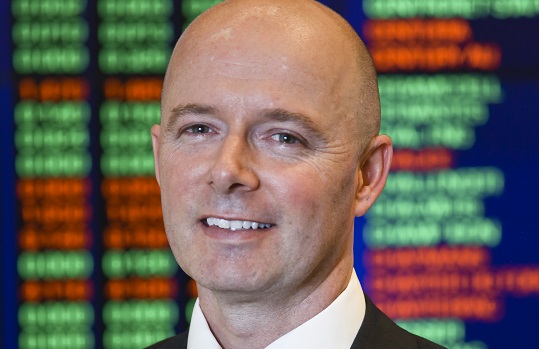
“A great idea is easy; bringing it to life will always be harder than you think. Bring your whole self to the task and use science and art to bring others on the journey.”
FST speaks with the ASX’s Cliff Richards on the blockchain-backed overhaul of its clearing and settlement system, CHESS, and why DLT should be back on all FSIs’ innovation agenda.
———————————————————–
FST Media: It’s no secret that data, while ubiquitous, is seen as a potential wellspring of innovation (and a largely untapped knowledge base). What existing barriers do you feel hinder Australia’s financial firms from making the most of their data assets?
Richards: There are many. These probably include: a lack of knowing where or how to begin; not being aware of contemporary methods of interrogating data for insight; a lack of standards and/or adoption of standards – across both data and processes; and the continuing development of systems that use data to progress an operational workflow without also organising that data in an analytics friendly way.
FST Media: ASX has positioned itself at the vanguard of blockchain innovation, replacing its decades-old clearing and settlement system with Distributed Ledger Technology (DLT) – one that, importantly, ensures a single source of truth on market transactions. How could opportunities from this initiative ripple out to corporate Australia?
Richards: Replacing CHESS with a new DAML (Digital Asset Modelling Language) smart contract-based application with a DLT connection option means we start to lay down a new data and workflow sharing infrastructure for the Australian market. This will be available to more than just stockbrokers, meaning that for the first time institutional investors like super funds and listed companies can directly connect to the replacement of CHESS and interact with their entitled data directly through the ledger. ASX will extend this infrastructure and bring our distributed ledger solutions expertise to corporate Australia. Corporate Australia or any DAML based software development business can develop their own DAML smart contract-based application solutions to operate on ASX’s new DLT infrastructure.
FST Media: ASX’s complex CHESS replacement has been described as a technological “leap of faith” given that enterprise-level distributed ledger systems remain relatively untested globally. How does ASX balance the imperative to innovate with its responsibility to operate within appropriate risk boundaries?
Richards: ASX’s clearing and settlement businesses are part of Australia’s critical market infrastructure. As such, our systems, operations, and rule books are highly regulated and overseen by ASIC and the RBA for things including market integrity and financial stability. Because of this, we don’t take “leaps of faith”. What we have done is spent over two years assessing technology solution suitability, including DLT for the replacement of CHESS. At the same time, we consulted with the entire market on what they wanted in any CHESS replacement solution. One of the markets’ main feedback points was to deliver ways to address structural cost inefficiencies in the stock market. Rather than focusing just on ‘fiddling around the edges’, we looked at the root causes of inefficiencies in markets, and in fact many other industries today. One of the key problems we identified was that the markets’ data and workflows are duplicated, siloed, non-standardised, incompatible and therefore error- and latency-prone.
The DLT solution we were assessing had several characteristics that can address these issues and allow the market to progressively adopt DLT and common standards to dramatically reduce these frictions over time. The real innovation we believe will be what third parties develop on top of the DLT infrastructure we’re laying down.
FST Media: Do you anticipate others in the FSI or stock/securities exchange space following ASX’s lead, shedding legacy technology for blockchain-based systems? What might spur them to do so?
Richards: Yes – undoubtedly. However, the use cases they address and the pace at which they do this will vary. Change is hard, and changing a market ecosystem with hundreds of key players is orders of magnitude harder. Keep in mind, existing infrastructure investments will need to run off before many will invest in newer, better replacement technologies. Exchanges are customer driven – so it will be customer demand that ultimately drives their change agenda.
FST Media: As a seasoned corporate leader, you’ve shown a deft hand coordinating successful technology initiatives over recent decades. What advice would you impart to aspiring technology leaders to nurture innovative thinking and get the best out of their teams?
Richards: A great idea is easy; bringing it to life will always be harder than you think. Bring your whole self to the task and use science and art to bring others on the journey. And if you don’t have a sense of humour, it will be even harder!
FST Media: On a more personal note, what is the best career advice you’ve received and how have you sought to put it into practice?
Richards: To be a servant leader. The best leaders inspire their team with a clear articulation of the vision state we’re all pursuing. Then, do everything you can as a leader to remove the obstacles hampering the team. Allocate problems, not tasks, and allow the team to develop and test their ideas; then guide the decision making and implementation of these.
———————————————————–
Don’t miss Cliff Richard’s featured presentation at the 2019 Future of Financial Services, Sydney exploring the transformative potential and industry use cases for blockchain technologies. Register now to secure your place!





